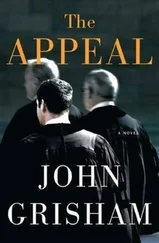“Has he called?”
“Once, but I didn’t answer. I thought about never coming back, but I was worried about my mother and I didn’t want to miss a meeting with my parole officer. I sort of snuck back into town today and I was planning to see my mother tonight.”
With the general narrative in place, Pacheco returned to the beginning of the story and hammered out more details. He dissected every movement and pushed the witness to remember every name. After four hours, Foreman was exhausted and eager to leave town again. When Pacheco finally relented, two U.S. marshals entered the room and left with Zeke Foreman. They drove him to a hotel in Gulfport, Mississippi, where he spent the first night of his new life.
–
Clyde Westbay lived with his second wife in a nice home behind gates not far from the beach in Brunswick County. He was forty-seven years old and had no criminal record. He held a Florida driver’s license and a current U.S. passport and had never registered to vote, at least not in Florida. According to state employment records, he was the manager of the Surfbreaker Hotel in Fort Walton Beach. He carried two cell phones and used two landlines, one at his office and one at home. Three hours after Zeke left Florida, FBI agents were listening to all four phones.
The morning mail included three thick packages from the law offices of Edgar Killebrew. Lacy reluctantly opened them and found his cover letter. He explained, in typical terse and arrogant language, that the “enclosed” was Judge McDover’s response to Lacy’s “frivolous” subpoenas. Attached to the letter was his formal demand that all allegations against his client be dropped and the investigation terminated. In the alternative, he demanded “an immediate and confidential hearing before the full Board on Judicial Conduct.”
Lacy had requested all of his client’s records, both official and personal, for ten specific lawsuits. As she began plowing through the stack, it became apparent nothing new was being offered. Killebrew and his associates had simply copied the court filings and lumped them together in a haphazard manner. There was an occasional memo dictated by the judge and not filed, and even a few handwritten notes, but nothing that revealed her thoughts, intentions, or observations; nothing that would implicate her in favoring one side or the other. But in all ten cases she had ruled for the faceless offshore entities and against the local property owners and litigants.
Not surprisingly, the paperwork was far less organized than the material Sadelle had indexed long ago. Nonetheless, Lacy had no choice but to review every document and record. When she finished, she reported to Geismar.
–
On October 5, the first Wednesday of the month, Judge McDover left her office an hour earlier than usual and drove to the same condo at Rabbit Run, her second visit there since the filing of the complaint that accused her of receiving the unit in a bribery scheme. She parked her Lexus in the same spot, leaving room for another vehicle, and entered the condo. She gave no indication of being the least bit jumpy or nervous, never once looked over her shoulder or up and down the street.
Inside, she checked the patio door and all windows. She went to her vault and spent a few moments admiring her “assets,” goodies she’d been collecting for so long that she now believed she deserved them. Cash and diamonds in small, portable, fireproof safes. Locked steel cabinets filled with jewelry, rare coins, vintage silver goblets and cups and flatware, limited signed first editions of famous novels, ancient crystal, and small paintings from contemporary artists. All of it had been acquired by casino cash, skillfully laundered through the systematic purchasing from dozens of dealers who never suspected that she and Phyllis Turban were violating those pesky reporting laws. The genius of their scheme was patience. Buy fine and rare goods in small quantities and, with time, watch their collection grow. Find the right dealers, avoid those who asked questions or seemed hesitant, and, when possible, move the goods out of the country.
She adored her collection, but for the first time in eleven years she felt the beginnings of a panic. All of this stuff should have been shipped or smuggled to a safer place. Now she had been accused. Someone knew about her condos and the mysterious companies that owned them. Vonn Dubose may have ice water in his veins, but Claudia McDover did not. Her insatiable appetite for cash was finally fading. She had enough. She and Phyllis could travel the world in style and laugh about the Indians. Most important, she could cut all ties to Dubose.
He arrived and fixed a double vodka. She sipped green tea as they sat at a breakfast table and watched the golf course. The two satchels were on the sofa; one filled with loot, the other empty.
“Talk to me about Killebrew,” he said after the usual chitchat.
“He’s loaded them down with paperwork, at five hundred bucks an hour, I might add. And he’s demanded that everything be dropped, of course. He’s blowing smoke about a prompt hearing but thinks he can delay it for at least six months. Where will we be in six months, Vonn?”
“Right here, counting our money. Nothing is changing, Claudia. Are you worried?”
“Of course I’m worried. These people aren’t stupid. I can show them the canceled checks when I bought the condos, ten thousand down for each when the market value was a lot more. I can show them the promissory note for the balance, most of which I still owe to some shady bank down in the Caribbean.”
“You’ve made payments over the years. Your arrangement with the bank is none of their business.”
“Very small payments, Vonn, very small. And the payments got rerouted back to me through another offshore bank.”
“They can never trace that, Claudia. How many times have we discussed this?”
“I don’t know, Vonn. What if I just resign?”
“Resign?”
“Think about it, Vonn. I can blame it on health issues, feed the press some bogus crap, and leave office. Killebrew would raise hell and claim that BJC would no longer have jurisdiction. There’s a good chance the complaint would go away.”
“The complaint is dead anyway.”
She took a deep breath, then a sip of tea. “Myers?”
“Myers has disappeared.”
She shoved the cup and saucer away and said, “I can’t take this anymore, Vonn. This is your world, not mine.”
“He’s on the run, okay? We don’t have him yet, but we’re closing in.”
Nothing was said for a long time as she counted the dead bodies and he thought about the extra cash he could pocket with her in retirement. “Who is the guy?” she asked.
“A disbarred lawyer from Pensacola named Ramsey Mix. Served some time in a federal joint, got out, found some money he buried when the Feds came in, changed his name to Greg Myers, and lived on a boat with his little Mexican sweetheart.”
“How’d you find him?”
“That’s not important. What is important is that BJC cannot go forward without him. It’s over, Claudia. It was a nice little scare, but it’s over. You can relax now.”
“I wouldn’t be so sure about that. I’ve studied BJC’s rules inside and out, and there’s no hard-and-fast procedure that dismisses the charges when the complaining party loses interest.”
She was a lawyer. He was not, and he wouldn’t argue with her. “Are you sure they’ll go away if you retire?”
“Again, I can’t predict what they’ll do. Their procedures are not always clear-cut. But, if I’m not on the bench, why should they care?”
“Perhaps they won’t.”
She did not know about the two videos and Vonn’s frantic efforts to contain the damage they might have created. She did not know about Lyman Gritt and his suspicious activities. There was a lot she didn’t know because, in his world, knowledge could be dangerous. Trusted confidants can be convinced to talk. Secrets get exposed. She had enough to worry about anyway.
Читать дальше












